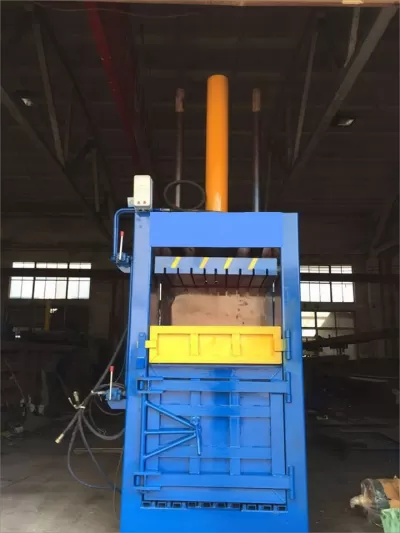Ever find yourself drowning in waste? No, not metaphorically—I’m talking about the literal mountain of waste your business generates every day. It piles up fast, doesn’t it? And managing it can feel like a never-ending battle. But what if I told you there’s a machine out there that can shrink that mountain into a manageable molehill? Enter the industrial compactor—a game-changer in waste management that’s essential for any business dealing with large volumes of waste.

An industrial compactor is a powerful machine designed to compress waste material into a much smaller, more manageable form. By reducing the size of waste, it not only helps businesses save space but also cuts down on transportation costs and environmental impact.
Whether you’re in manufacturing, retail, or food processing, a compactor can be a real asset to your operations. But wait—how does it actually work? And more importantly, how can it benefit your business?
How Does an Industrial Compactor Work? Imagine trying to fit all your trash into one tiny bin. That’s essentially what a compactor does, but with a lot more muscle. Industrial compactors use powerful hydraulic or pneumatic systems to apply pressure to waste materials, crushing them into dense, compact blocks. These blocks are much easier to handle, store, and transport. The process starts with loading the waste into the compactor’s chamber. Then, the machine’s hydraulics come into play, pushing down with immense force, squeezing the waste into a fraction of its original size. The result? A compacted block that’s ready for disposal or recycling. This process is not only efficient but also surprisingly satisfying to watch.
What Should You Consider Before Buying a Compactor? Thinking about making the investment? Here are a few things to consider before taking the plunge:
1. Waste Volume: Assess how much waste your business generates and what types of materials you’ll be compacting. This will help you choose the right compactor.
2. Space Availability**: Do you have the space for a stationary compactor, or would a vertical or portable model be more suitable?
3. Budget: While the initial cost can be high, consider the long-term savings and benefits.
4. Regulatory Compliance: Ensure that the compactor you choose complies with all relevant regulations, especially if you’re dealing with hazardous waste.
5. Training and Safety: Make sure your staff is properly trained to operate the compactor safely. This will help prevent accidents and maximize efficiency.
Conclusion So, there you have it. An industrial compactor is more than just a piece of machinery—it’s a strategic investment that can save your business money, improve efficiency, and reduce your environmental impact. If you’re looking to streamline your waste management process, a compactor might just be the solution you’ve been searching for. In the world of waste, sometimes all you need is a little (or a lot of) pressure to turn a big problem into a small one.
